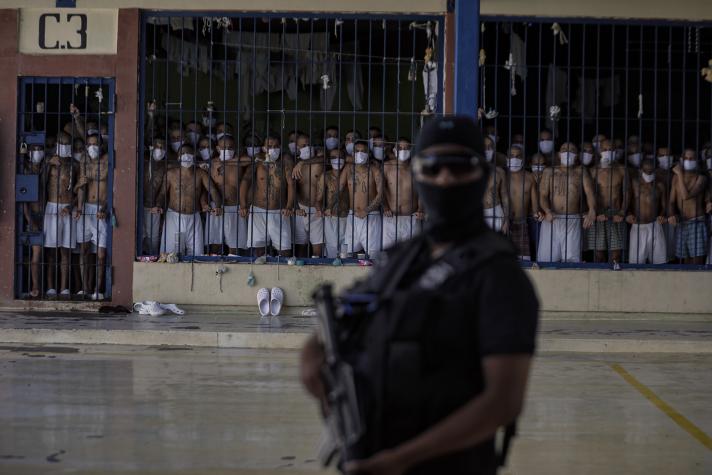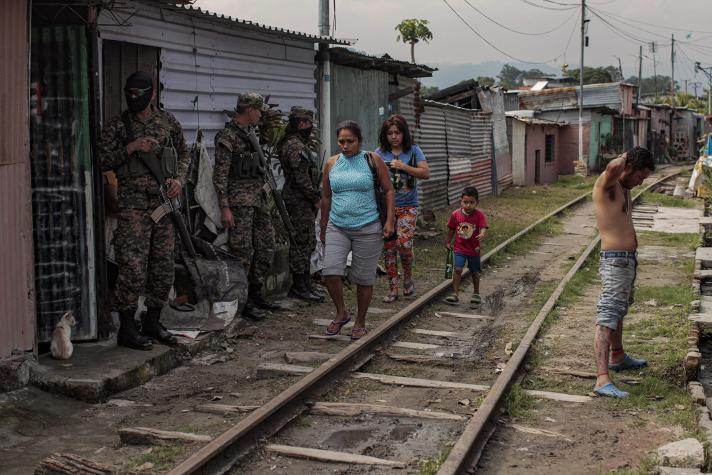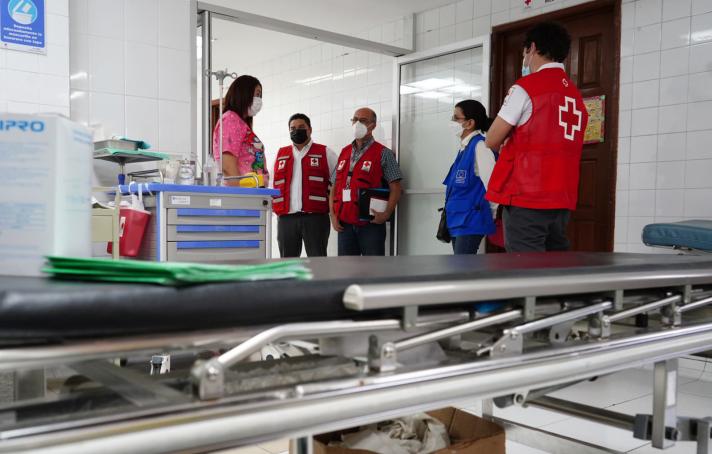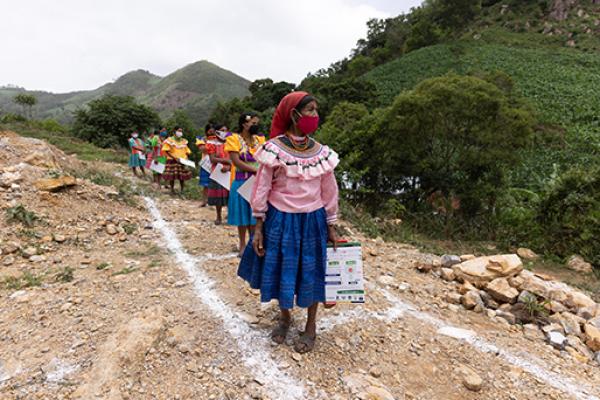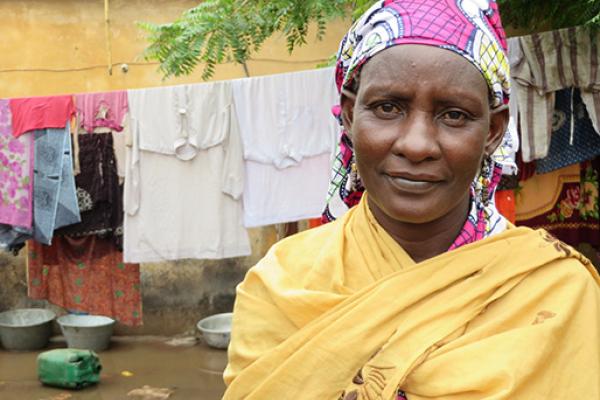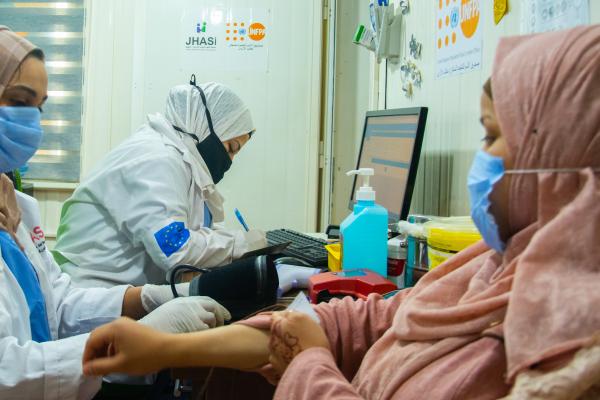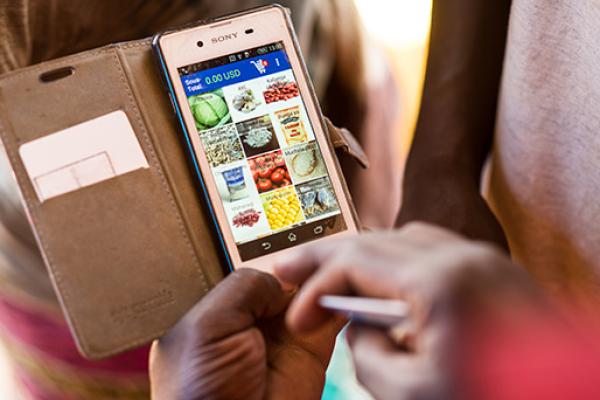“They called me from the morgue to tell me that there were 2 new corpses who looked like my sons. I went to identify them, but it wasn’t them. 3 days later, again: ‘ma’am, there are other 2 corpses.’ I ran, and again it wasn’t them. This went on for a while; I spent my days watching corpses, and none of them were my sons’.”
Isabel* is in her 60s; her eyes fill with tears and her voice trembles as she tells her story. We meet her in an EU-funded safe space managed by the Spanish Red Cross in El Salvador, where Isabel and other victims of violence receive psychosocial support, medical care and cash-based assistance.
“I am not out of the woods yet, but it is thanks to this kind of help that one can breathe again and think straight. Without this support, one feels afraid and completely lost,” says Jimmy, one of the beneficiaries.
One can almost feel the pain in her effort to recall what happened. Now and then, she pauses, breathes heavily and raises her eyes to the sky as if searching somewhere for the strength to keep talking.
“I was with my sons in our neighbourhood when some guys called them. My sons were taxi drivers, and I thought these people wanted a ride. When my sons started walking toward them, I followed, but my elder son told me not to: he did not want these people to see me. I tried to insist but to no avail. Both my sons walked up to them, and this is the last time I saw them.”
She desperately holds on to the hope of seeing them alive again, but she lived all her life in the toughest neighbourhoods of El Salvador and knows how such things can go.
The 2 main gangs in the country – the Barrio18 and the Mara Salvatrucha13 (MS13) – control significant portions of urban and rural areas. They survive mainly on extortion, drug trafficking and forced prostitution and are renowned for their cruel behaviour.
Taxi drivers are among the most persecuted: if they want to work in certain areas or simply exercise their profession, they must pay a cut to the gangs. If they don’t pay, they get killed or disappear forever.
There are no exact figures, but it is estimated that there are some 70,000 active gang members in El Salvador alone.
Gang violence is an epidemic spread through the North of Central America – Honduras, El Salvador and Guatemala – and Mexico, where it has taken hostage entire segments of the society, taking away safety, happiness and development.
It is not only about money, as Jimmy, another beneficiary of this EU-funded project, recounts. “My problem started with my daughter. A gang member fell in love with her, he wanted her for him (…) and from that day, a martyrdom began for my family,” he says.
This is an all-too-common story in El Salvador, a violent power dynamic in which gang members consider women as their property and decide who must become their wife or girlfriend.
A woman’s opinion does not matter, let alone her family’s. Jimmy tried to hide her, to protect her as any caring parent would do, but this endangered him and his entire family and turned them into targets.
“We could not go back to our home. We received videos threatening us. They (gang members – Ed.) showed us pictures of our house saying they were coming to kidnap my daughter that very night because she was theirs,” says Jimmy, anxiously panting.
Supporting the victims
The EU works with several humanitarian partners throughout the north of Central America, where gang violence is so blind and widespread that it resembles a conflict.
“In El Salvador, the situation we are experiencing is different from other conflicts, but the humanitarian consequences are very similar: loss of life, injuries, forced displacement, mental health issues and the destruction of many people's life plans,” says Carlos Arenas López, the Spanish Red Cross coordinator in El Salvador.
“You always need to know who is in,” says Mauricio*, one of the doctors working with the Spanish Red Cross. “There are areas under control of one of the 2 main gangs, and anyone who is not from there is perceived as an enemy. Whether you are a doctor or a regular worker, you will be watched at every step.”
For humanitarian workers, accessing such areas is a risk, even if they are always identifiable and state the purpose of their visit beforehand. It regularly happens that they are stopped, threatened, robbed, or interrogated.
“The violence of armed groups results in a lack of safety for our staff working on the frontline. In fact, even our protection strategies are similar to those followed in conflict zones,” says Carlos Arenas López.
“Unfortunately, to survive all this, we had to normalise it. Like we did with COVID-19. You know it is here and you must accept it and take all the precautionary measures not to contract it. The same is with violence,” says Rosa, another doctor working with the Spanish Red Cross.
In 2021, according to government’s data, there have been 1,440 assassinations in El Salvador.
The situation is not improving in 2022: the country has been under a state of emergency for more than 100 days after a wave of violence that culminated in March with the assassination of 87 people in just 3 days.
The number of people who disappeared doubled from 2020 to 2021, going from 200 to 488.
In this complicated context, with EU humanitarian funding, the Spanish Red Cross has provided direct and constant psychosocial support to more than 400 survivors of violence. More than 300 have also received unconditional cash support to cover their basic needs.
*Name has been changed for protection reasons.
Story by Daniele Pagani, Regional Information Officer for Latin America and the Caribbean, EU Civil Protection and Humanitarian Aid Operations.
Publication date: 30/08/2022

